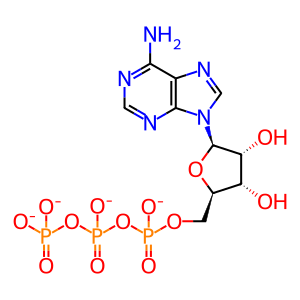Reaction: Defective ABCC8 does not form functional KATP channels, causing hyperinsulinemic hypoglycemia
- in pathway: Defective ABCC8 can cause hypo- and hyper-glycemias
ATP-binding cassette sub-family C member 8 (ABCC8) is a subunit of the beta-cell ATP-sensitive potassium channel (KATP). KATP channels play an important role in the control of insulin release. Elevation of the ATP:ADP ratio closes KATP channels leading to cellular depolarisation, calcium influx and exocytosis of insulin from its storage granules. Defects in ABCC8 can cause dysregulation of insulin secretion resulting in hyperglycemias or hypoglycemias.
Familial hyperinsulinemic hypoglycemia (see HHF1; MIM:256450) is a disorder caused by defective negative feedback regulation of insulin secretion (persistent hyperinsulinism) leading to severe hypoglycemia. The most commom ABCC8 mutations causing HHF1 include F1388del, A1330Gfs*35, V187D and E1507K (Thomas et al. 1995, Nestorowicz et al. 1996, Otonkoshi et al. 1999).
Familial hyperinsulinemic hypoglycemia (see HHF1; MIM:256450) is a disorder caused by defective negative feedback regulation of insulin secretion (persistent hyperinsulinism) leading to severe hypoglycemia. The most commom ABCC8 mutations causing HHF1 include F1388del, A1330Gfs*35, V187D and E1507K (Thomas et al. 1995, Nestorowicz et al. 1996, Otonkoshi et al. 1999).
Reaction - small molecule participants:
ATP [cytosol]
Reactome.org reaction link: R-HSA-5683113
======
Reaction input - small molecules:
ATP(4-)
Reaction output - small molecules:
Reactome.org link: R-HSA-5683113

